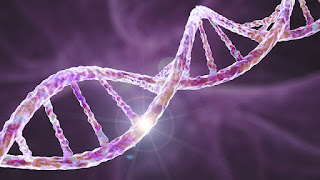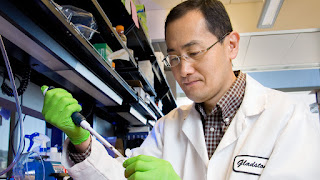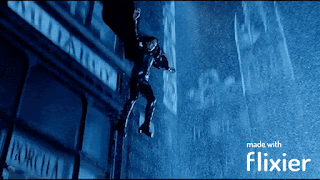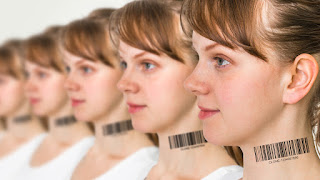Many factors, from poisons to which we are exposed throughout our lives, to radiation, destroy our bodies. Sometimes, we can witness the emergence of problems such as cell divisions that cannot be stopped by the formation of errors in gene sequencing, and the body's own cells perceiving its own cells as a threat and attacking healthy cells. Proteins are damaged, the body cannot renew itself, the destruction of years accumulates, more and more cells die and we age. And so the love of immortality begins. Because being exposed to this process is both physically and psychologically painful.
In a healthy and young individual, the body is largely
capable of coping with daily destructions. It can detect and stop damaged DNA
divisions, eliminate damaged cells that can harm the body, or repair damage
that can be repaired. However, as the damage accumulates over time, the body
becomes unable to cope with it and gets tired. Or things can get out of control
even in young bodies as a result of the deterioration of this natural
damage-repair balance of the body. In any case, at some point in our lives, we
are doomed to aging and to live with the problems caused by aging cells.
We can list a few of the causes of aging: mutations that occur within the cell, the shortening of telomeres that protect DNA over time, cellular aging and accumulation of senescent cells, and a decrease in stem cell activity. You may have a question as to whether correcting or preventing these causes can protect us from aging. Well, let's see what we can interfere with within our biology and challenge aging.
Let's start simple. So let's see if we can oppose aging with simple changes in our lives. If you've read or at least heard of Ikigai: The Japanese Secret to a Long and Happy Life, you have an idea. It is said that when we add certain habits such as a mostly plant and seafood-based wide variety and natural diet, an active life, staying away from stress as much as possible, and finding our life purpose, we become more resistant to diseases and prolong our life span (unless there is an accident factor). If you want to learn more about the secret of longevity, I can recommend this book.
Even the positive habits included in this natural process do
not prevent us from getting old, they only delay it and bring our quality of
life to a slightly better level. Even though a quality life brings us to our
120s, we are still getting old. This is not enough for us. So, no matter how
well we live, why can't all this provide us with immortality?
Even the body's attack against its own cells is to protect
the remaining cells. So our body naturally has an instinctive effort to
survive. That is, your body says, if there is a mistake somewhere, I will
sacrifice it to protect the others so that I can protect the vital organs. As a
result, no matter how hard our body tries to survive, it can no longer
withstand the accumulation of years.
So if we prevent cell damage and make regeneration
permanent, can we become immortal?
Yamanaka Factors
When I think of regeneration, the first thing that comes to
my mind is stem cells. You may have heard of pluripotent stem cells. It
attracts a lot of attention in medical research with its ability to self-renew
and transform into other body cells. Things get more interesting with the
discovery of a group of protein transcription factors that play an important
role in generating these ingenious pluripotent stem cells. Yamanaka factors…
It is actually good for us to stop the regeneration of a
cell at a certain stage. Otherwise, a constantly dividing cell means a tumor.
However, in a study by scientists, it was discovered that aging phenotypes can
be deleted or delayed without causing tumor formation by initiating
reprogramming in cells exposed to Yamanaka factors. These findings hold promise
that aging factors such as reduced resistance to damage and reduced
regenerative capacity can be delayed by partial reprogramming.
Clearing Senescent Cells
At the beginning of the article, I mentioned that aging
cells accumulate and the body cannot cope with this situation. Based on this,
when I was searching for if cleaning these aging cells could lighten the load
on the body, I came across research.
The scientists treated naturally aged mice by selectively
removing senescent cells. They observed that the signs of aging and chronic
inflammation in various tissues and organs of these mice were reduced. They
also observed improvement in the mice's impaired motor function and muscle
strength. According to the scientists, the results of the experiment provide an
important opportunity for the treatment of age-related diseases and
intervention in the aging process. So, even just cleaning the garbage in the
body can make a difference.
Telomeres
Another noteworthy research topic is telomeres. We have
mentioned that telomere shortening is also associated with aging. However,
these telomeres can also affect aging, let's take a look at it now.
Telomeres are a type of cap at the ends of chromosomes that
protect DNA. Telomeres shorten with each cell division. When they become too
short to divide further, they lead to apoptosis, that is, programmed cell
death. There is also an enzyme called telomerase, which can slow the shortening
of telomeres. Therefore, it is hoped that activating this enzyme can also slow
down aging. Although there is evidence that this technique may work as a result
of studies in mice, increasing telomerase in humans poses the danger of causing
tumor development.
The high level of telomerase activity found in most cancer
cells has led to telomerase being considered carcinogenic. This risk also
prevents us from diving headfirst into telomerase activation. However,
considering that short telomeres are associated with tumor formation, it cannot
be ignored that telomerase deficiency may also lead to cancer.
Researchers from Stanford University found that skin cells
with telomeres extended using modified RNAs are 40 times more capable of
dividing than others. They observed that the treated cells behaved as if they
were much younger than the untreated cells.
"Now we have found a way to lengthen human telomeres by
as much as 1,000 nucleotides, turning back the internal clock in these cells by
the equivalent of many years of human life," says Helen Blau of the
research group.
However, the effects of this method do not last long and
disappear within 48 hours. After this period, the elongated telomeres begin to
shorten gradually again. Nevertheless, it can be said that it will be an
important guide for future research.
Is it enough?
In other words, theoretically, it may seem like we will be
able to defy aging to a great extent when we fire our Yamanaka factors and
increase telomerase in a controlled way and clean up old cell garbage. Why not.
Even if we assume that all these biological methods will work one day, we can
only slow down aging. Unless there is any external factor, you may live to be
around two hundred years old. Or more according to developments in this field.
However, none of these are exactly immortal. You may ask why? Because the human
body is still vulnerable to diseases, accidents, and natural disasters. In
addition, even if we delay it, it may not be possible to completely stop or
prevent aging.
In that case, let's start looking for other methods. One of
the ways we can come across this regard is the transfer of consciousness to a
new body.
Clone Body
You know that it is our memories and our experiences that
make us who we are. All of these are consciousness. Even if our body has aged,
if we can revive the same consciousness in a new brain and body, it is quite
possible for us to be the same person. You may have seen those who try
unethical methods such as seizing the consciousness of a young body in TV
series and movies, but of course, my suggestion would not be to use an existing
human body. We might consider producing a clone body.
I talked about cloning in one of my previous articles. I'm not going to do redundancy about the same subject here. In short, if we manage to clone our own body and develop it in a laboratory environment and transfer our consciousness to it, we can replace our aging body with a new one, just like changing old clothes. It means that an individual who has disorders cannot be cured or dismembered or is on the verge of death can continue to live in a regenerated body in this way. It may seem like science fiction, but scientists continue to work on cloning and consciousness transfer. So we don't know if it will become a reality in the future.
Even though we can change bodies just like changing clothes,
there still seems to be a problem. What if it's too late in an emergency and
the person dies before consciousness can be transferred? It still doesn't sound
quite as immortal as in fantasy scenarios, does it? Then let's take
consciousness transfer to another dimension. What about transferring it to a
humanoid robot?
Robot Body
While transferring a human brain to a cloned brain is
already a complex idea, trying to fit an entire brain into a robot processor
can be a thousand times more challenging. While scientists still haven't
figured out how the brain works, creating an equivalent processor may not seem
like an achievable goal in the near future. However, if we consider that we are
talking about a fictional theory, no one can stop us from imagining the
possibilities it can provide us when it happens, right? So let's suppose that
sometime in the future, scientists build a humanoid robot with a processor that
can mimic the way the brain works exactly, and that this robot has a quantum
storage space high enough to handle all the information in the human brain. We
will have a body that is more resilient and easier to change. Turning off
consciousness is probably as risky as shutting down a computer. So when you
reopen, we can continue working without any problems. I mean I hope so…
Virtual Body
Of course, you may also want to transfer consciousness
directly to virtual reality through the same scenario. Matrix, Upload, Ready
Player One… If you've seen one of these movies and TV shows or heard of
Metaverse before, you know what I mean. In simple terms, we can say that a
world established in the virtual parallel of the universe we live in is a
future where people can continue living there by transferring their
consciousness. Consider how virtual reality glasses provide realistic gaming
experiences. In this scenario, you will be completely inside the game or the
universe. Just as a game character can continue to play as if nothing happened
after restarting the game even when he dies because he is not made of flesh and
blood, someone who has transferred his consciousness to the virtual universe
may have similar conditions. It may seem exciting. Of course, if you don't get
any virus… The virus of the virtual environment can be crueler than flu viruses
and strong enough to take over your whole life. There is also the problem of
power outages. Let's hope the person who made that technology will come up with
a solution to these as well.
Long story short, we can think of many different
possibilities for extending life, but there is always a flaw in every way. If
you want to live that long and be optimistic and continue dreaming, you are
free to do so. Even if you don't want to, let's not forget that all these
studies can have other advantages besides immortality. For example, a study
that can stop cell aging may be promising in the fight against aging-related
and challenging diseases such as Alzheimer's. Imagine if the patients whose
bodies were severely damaged could transfer their consciousness to a new body
and continue their lives unhindered. Ways that will spark our eyes in the
medical field and help many patients can be brought to humanity as a by-product
of the desire for immortality. Maybe we won’t be immortal, but we can help
ourselves complete life in a healthier way.
Be safe and healthy.
You may also like:
Sad Robot, Happy Robot - Can Artificial Intelligence Have Emotions?











Comments
Post a Comment